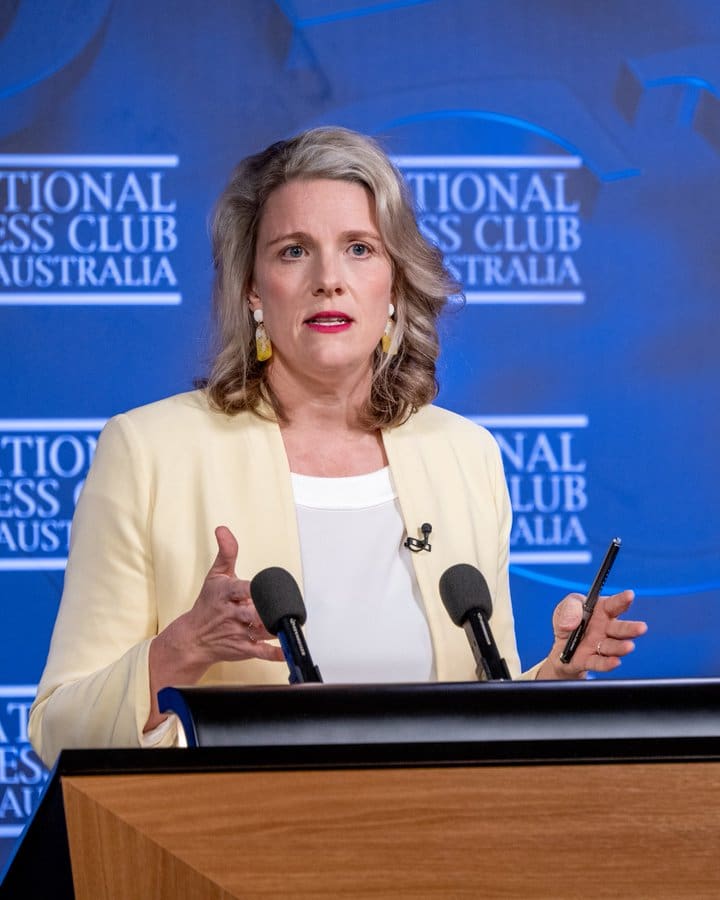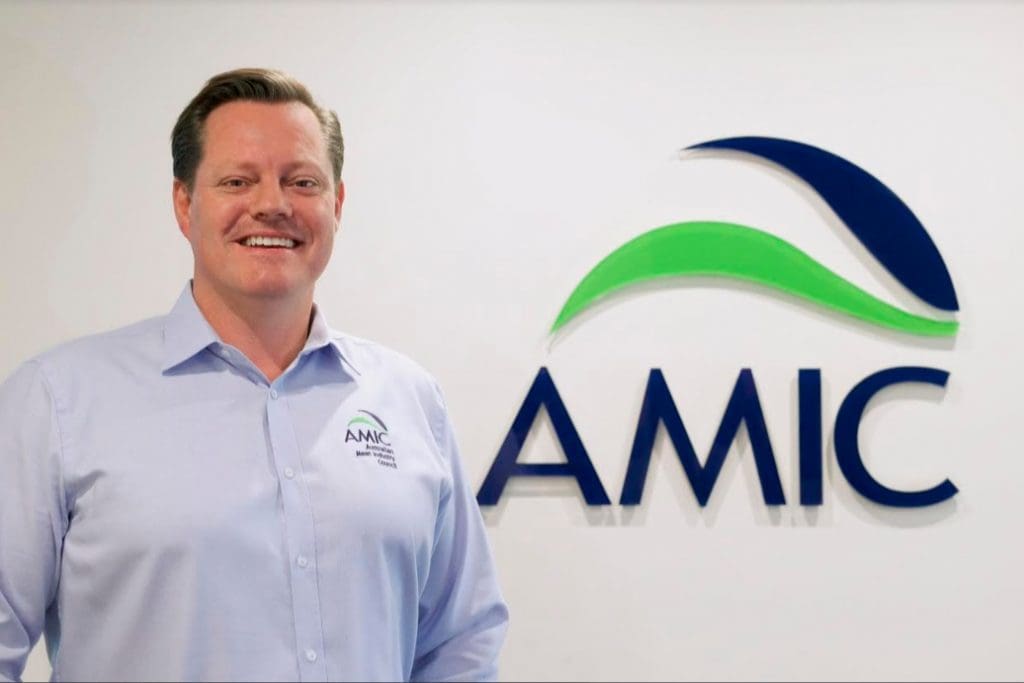
Minister for Home Affairs Clare O’Neil at the National Press Club yesterday. Image – Twitter
AUSTRALIA’S red meat processing sector has urged the Federal Government to ensure processors’ concerns are heard in any reform of the nation’s visa system.
At the National Press Club yesterday Minister for Home Affairs Clare O’Neil said the minimum wage threshold for skilled workers would be raised and a pathway to permanency for about 17,000 temporary workers would be established.
From July 1, temporary skilled migrant workers will need to be paid a minimum of $70,000, as the new Temporary Skilled Migration Income Threshold, instead of the current $53,900. The threshold is the minimum income to define a migrant as “skilled”.
Australian Meat Industry Council chief executive officer Patrick Hutchinson said AMIC commended the Government for recognising the need for visa reform.
“But we need assurances that these reforms will work for the meat industry and are economically viable or we will be in an even worse position than we are now.
“If these reforms do not take industry’s concerns into account, it will hurt not only our processors and exporters but have a dramatic impact on small businesses like independent local butchers, Australian families and hamper our ability to export the world’s best animal proteins,” he said.
“What we will need to understand in the coming days is if there will be any concessions under the Temporary Skilled Migration Income Threshold, specifically for labour agreements.”
Consultation started on temporary skilled migration restructure
At the National Press Club yesterday the minister said the government had begun consultation on a proposal to restructure Australia’s temporary skilled migration program, with a draft Australian Migration Strategy proposing three new pathways for temporary skilled migrants, tightly tailored to the needs of the country.
“The first pathway is a fast, simple route for specialised, highly skilled workers we need to drive innovation in our economy, and to help us build the jobs of the future.
“The second is a mainstream temporary skilled pathway to bring in the core skills we need,” she said.
“For this stream, we would focus on proper, evidence-based assessments of skills needs, rather than the current outdated approaches that everyone agrees are not working.
“This pathway would include skilled migrants earning above an increased temporary skilled migration income threshold, to ensure our migration system remains a program for skilled migrants,” Ms O’Neil said.
“The third stream relates to our essential industries.
“One of the reasons there is so much exploitation is because we have allowed low-wage migration programs to operate in the shadows, for example, through exploitation of our international student visa system,” she said.
“That has allowed areas of the economy that rely on these workers to become either highly vulnerable to exploitation, or subject to chronic, ongoing labour shortages that put huge pressure on existing workers.
“Instead of pretending that some students are here to study when they are actually here to work, we need to look to create proper, capped, safe, tripartite pathways for workers in key sectors, such as care,” Ms O’Neil said.
“Not only would this better support our industries, it would provide far better protection for the workers we depend on.
“We will propose to reform the way we determine which temporary migrants end up as permanent residents, and ultimately citizens.”
Ms O’Neil said a critical change here is how ‘the points test’ is designed.
“Every year, we select roughly 100k permanent residents using the points test.
“By 2050, we could have millions of additional people living in Australia who are selected using this test,” she said.
“But the current test is not working properly. The bar is set too low. And, that test rewards persistence, not the skills we need for Australia’s future,” Ms O’Neil said.
“Getting it right could add tens of billions to the Federal Budget over the next 30 years, and make a real difference to our economic growth.
“Lastly, Australia needs to enter the competition for global talent.”
Ms O’Neil said Australia needed to make a big switch in thinking: “from the passivity which drives the system today, to active engagement with the people we think can help build our country’s future.”
“We propose creating a new area in my department, working with Jobs and Skills Australia to identify skills needs in Australia’s economy.
“Under this proposal, we would go out into the world and find the migrants Australia needs, and talk to them about joining us on our national journey.”
Meat industry supply chain employs more than 150,000

AMIC CEO Patrick Hutchinson.
Mr Hutchinson said the Australian post-farmgate meat supply chain directly employs 50,000 people, with more than 100,000 additional jobs indirectly supported.
“Many of these jobs are located in rural and regional Australia.
“Our industry is continually challenged by labour deficits, which hinder businesses’ ability to operate at full capacity,” he said.
“Visa reform is essential for the Australian meat industry to recruit a suitable and sustainable workforce and ensure food supply is not impacted, but we must ensure changes to the system are fit for purpose and assist in providing the workers the industry desperately needs.”
AMIC said it looked forward to working closely with the government under the proposed tripartite mechanisms to review the reform directions and ensure a future migration system and programs are suitable for business and support essential food supply chains.
Click here to read an outline of the government’s migration system and here to read the government’s Review of the Migration System final report.

HAVE YOUR SAY